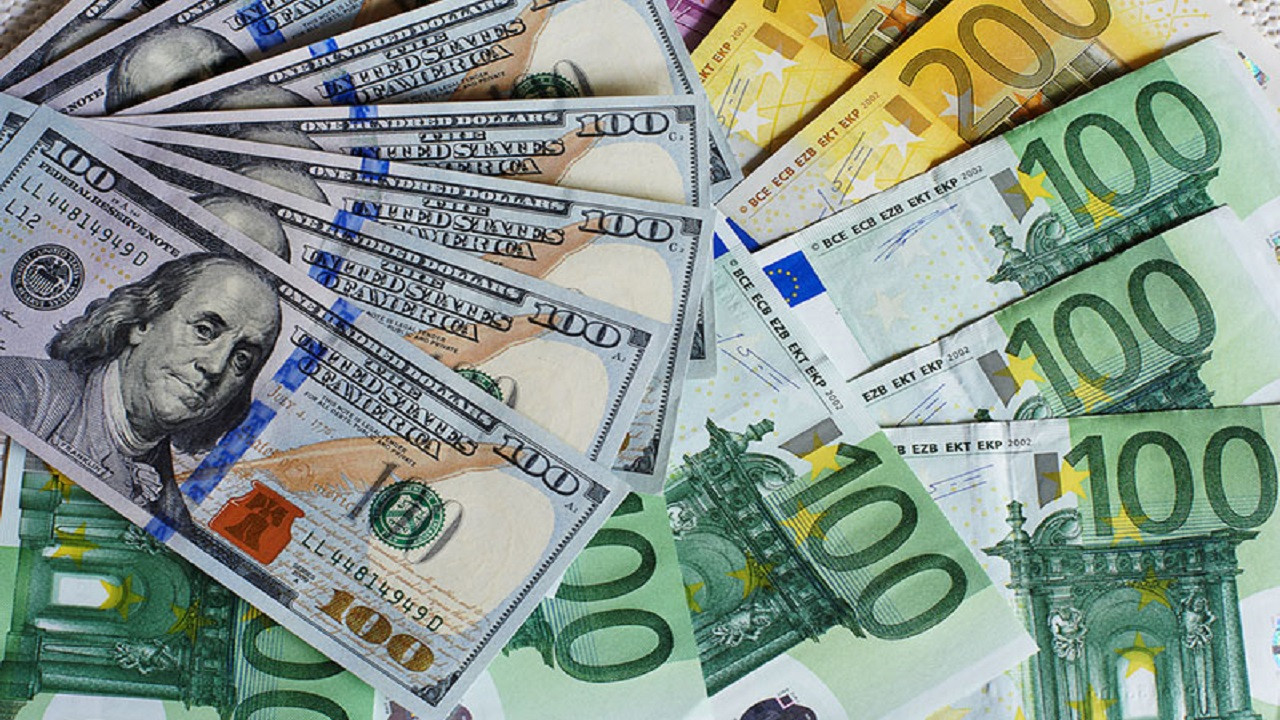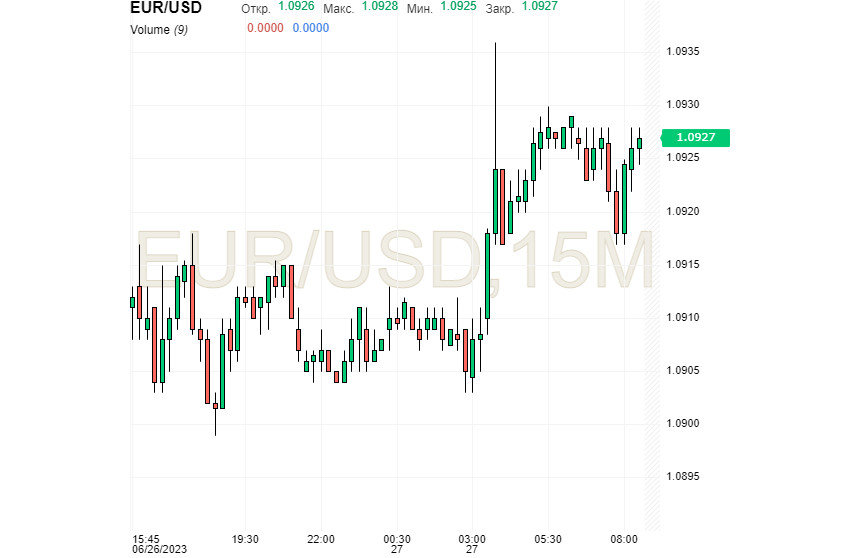
The US currency has to put in a great deal of effort to maintain its positions. The leadership of the greenback is threatened by the euro, which has felt its strength and is trying to push out the USD. However, the efforts of the single currency are often unsuccessful and its gains are short-lived.
On Tuesday, June 27, the US currency maintained its position against other major currencies amid geopolitical tension. In addition, traders are waiting for the macroeconomic data from the United States, which will help to determine the timeline for raising interest rates. Meanwhile, the dollar's value remains unstable and it continues falling against the euro.
At the end of last week, the EUR/USD pair was trading at the level of 1.0925 when disappointing data on the eurozone PMI index was released. Later, the pair plunged to 1.0845. Currently, the EUR/USD pair is hovering near a similar level, namely 1.0927. Notably, it is striving to launch an upward movement.

According to analysts, negative data on the eurozone PMI index as well as on the German IFO index published on Monday, June 26, did not hinder the rise in the euro. Notably, in June, the German IFO index fell to 88.5 points from 91.5 points in the previous month. Despite quite negative reports, the EUR/USD pair managed to recoup almost all its losses.
According to estimates, in the short and medium term, the EUR/USD pair could climb to 1.1180-1.1190. Weak data on the European economy is not hindering the increase in the single currency. The euro is also supported by a rising appetite for risk in the markets.
Currently, the euro is demonstrating moderate growth. The upcoming speeches of the ECB officials, scheduled for Tuesday, June 27, and Wednesday, June 28, are contributing to the euro's stability.
According to HSBC, discrepancies in the policies of leading central banks will also boost the euro in the coming months. HSBC thinks that the ECB will raise the rate twice (by 25 b.p. at each meeting), while the Fed will do this only once (by 25 b.p.). Thus, the balance of risks from the short-term rate dynamic will support the euro in the near future, the bank emphasizes.
In addition to the current decisions of central banks, there are structural reasons for further growth in the euro. Analysts believe that the ECB's switch to quantitative tightening (QT) has led to serious changes in the dynamic of portfolio flows. The large-scale inflow of funds into bonds and shares, which was provoked by the ECB's current strategy, is also positive for the euro.
Apart from that, the single currency was supported by improved trading conditions. This measure helps to maintain the current account surplus in the eurozone, justifying the strengthening of the euro. One more reason for the expected growth in the euro is the repayment of the next round of bank debts under TLTRO-III, scheduled for Wednesday, June 28. Leading financial institutions have prepared for this event, creating a favorable environment for potential growth in the euro.
Against this backdrop, many analysts expect a short-term rise in the EUR/USD pair to 1.1100 and higher, as well as reaching new highs. At the same time, large-scale growth in the euro, specifically above 1.1200, is unlikely. The US Treasury, which is actively increasing the national debt, does not need either a collapse of the dollar or an excessive strengthening of the euro, experts believe.
Later on Tuesday, June 27, US macroeconomic data on consumer confidence and property estimates will be released. According to preliminary forecasts, the US consumer confidence index, provided by Conference Board, jumped to 104 points from the May figure of 102.3 points. As for new home sales in the US, they fell by 1.2% to 675 thousand last month.
The US statistical data published this week also include information about new orders for durable goods, housing construction, and consumer surveys from the Conference Board and the University of Michigan. Moreover, traders are focused on the possible Fed rate hike of 25 b.p., which will take place in July this year.
According to Mizuho Securities currency strategists, two more Fed rate hikes are possible in the near future. However, traders have not priced in such a possibility yet. If US economic data turns out to be positive, further price formation and two rate hikes will push the USD up.
Morgan Stanley's currency strategists are also emphasizing the key role of the dollar, which will determine the profitability of investors in 2023. According to forecasts, in the near future, the greenback will become the most favorable and efficient among safe-haven assets. The US currency will continue its current rally. By the end of this year, it will grow by 5%. Meanwhile, risks for USD could become lower. Experts draw attention to many potential risks that threaten investors: volatility of the banking sector, geopolitical problems, constantly rising inflation, etc. As investment prospects remain vague, the greenback is the most suitable asset and reliable insurance against negative factors.
 English
English 
 Русский
Русский Bahasa Indonesia
Bahasa Indonesia Bahasa Malay
Bahasa Malay ไทย
ไทย Español
Español Deutsch
Deutsch Български
Български Français
Français Tiếng Việt
Tiếng Việt 中文
中文 বাংলা
বাংলা हिन्दी
हिन्दी Čeština
Čeština Українська
Українська Română
Română

